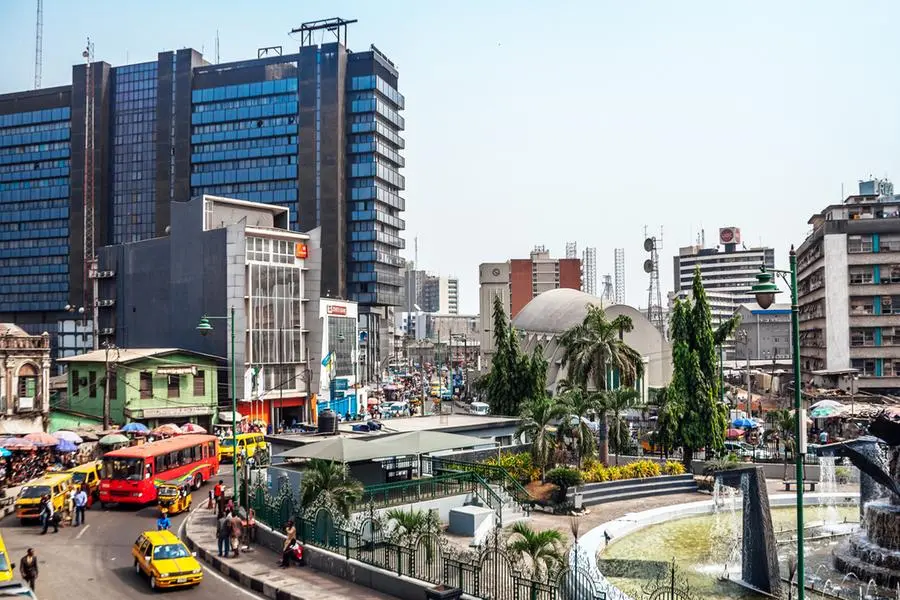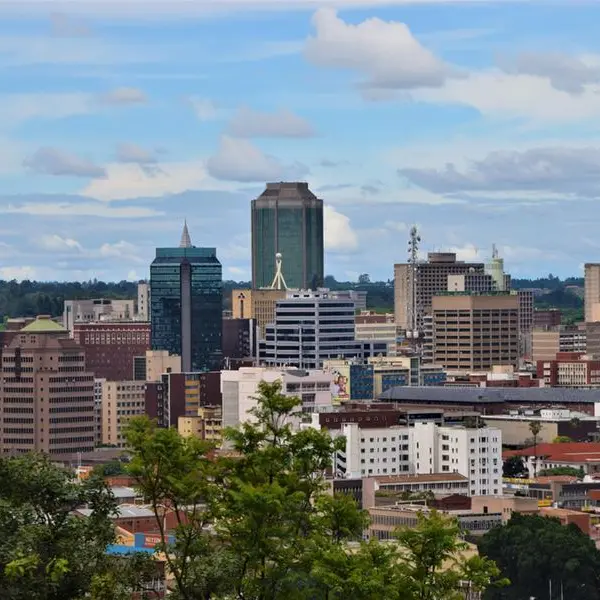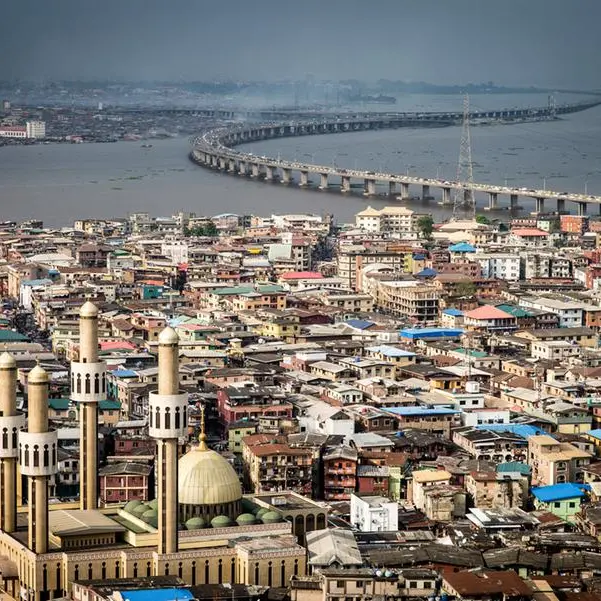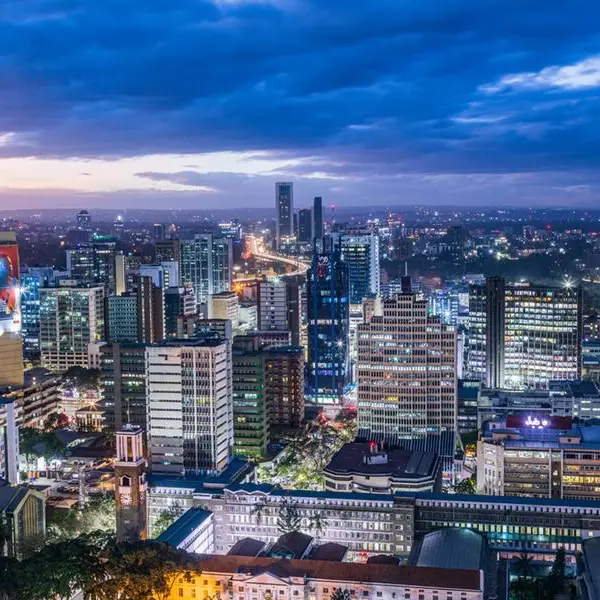PHOTO
Economists have reached a consensus that blocking fiscal leakages, the need for the Bola Tinubu administration to establish an Economic Think Tank with seasoned economists and the need for the fiscal authorities to take the lead with a properly communicated fiscal policy framework that addresses the economic challenges adversely affecting the country are part of the ways out of Nigeria’s economic hardship.
On Friday, February 23rd, 2024, Proshare, a specialized financial market intelligence hub, hosted an Economists’ conference themed “Policy Crossroads: The Choice Between Strangulation and Expansion.”
The online/webinar conference was monitored in Lagos.
Related PostsNigeria’s insurance industry should embrace digitisation, innovations —CIINNigeria ready to contribute to global dialogue at WTO 13th Ministerial ConferenceQatar to host business forum during Tinubu’s visit — Embassy
According to the Economists, Nigeria is likened to a football team playing at a knockout stage in a tournament and using third and fourth eleven instead of first-eleven.
Among the speakers, include Dr Ayo Teriba, Chief Executive Officer (CEO) of Economic Associates; Mr Bismarck Rewane, CEO of Financial Derivatives Company; Dr Tilewa Adebajo, CEO of CFG Advisory; Mr Tope Fasua, Special Adviser on Economic Matters to the President (Office of the Vice President).
Others are Dr Ogho Okiti, CEO of Think Business Africa; Dr Yemi Kale, Group Chief Economist & Managing Director (Research & International Cooperation) Afrexim Bank and Mr Teslim Shitta-Bey Chief Economist; Proshare Limited.
The experts in their submissions agreed that Nigeria is not only at cross roads, but at the point where the country is doomed, if the right things are not done now.
Dr Ogho Okiti, stressed the need to quench the fire of Nigeria’s current macroeconomic instability.
According to him, as it is, any size and form of investible funds is directed towards purchasing the US dollars, showing a lack of confidence.
“We need concrete fiscal measures to address the problems that we currently have. What I have seen in the last six months is the focus and the emphasis on monetary policy measures-that is the one that baffles me because monetary policy measures will not do it,” he stated.
He added: “Nigeria has a deficit of N9 trillion, but there is nothing that says that the country must have a deficit of 3.5 percent of Gross Domestic Product (GDP).
“The new president of Argentina came into power just about three months ago. And within three months, he did all he had to do to arrive at a balanced budget for them.
In Nigeria, he said all the monies coming out from the fiscal side are chasing dollars.
“I especially stressed that we need greater levels of fiscal measures and initiatives to support the monetary measures of the CBN. It will be helpful to move faster on either concessioning or the sale of some government shareholding assets.
“Indeed, if I were the president, I would assemble everyone needed into a room every working day morning until the Naira stabilises. Whereas there are not too many palatable options, every option should be on the table to stop this rapid depreciation of the Naira.
“Most of the responses I see to hunger and frustration in the country are not job initiatives, training opportunities, or support towards investments. They are more handouts. I can’t stress this enough … you can’t share poverty and then prosper.
He believes that Nigeria needs to restore confidence in the economy and monetary policy measures will not do it.
Nigeria’s problem is long-term but we cannot divorce the long-term problems from the current, he said.
“And what is our long term problem? We have just not been able to organize our fiscal policy and expenditure. There is no further problem that we have in Nigeria.
“When we say that the UK, Germany and others entered recession, let us remember that they do not have the fundamental problems that Nigeria has. Those economies can easily come out of recession and bounce back in a short time.
“We just keep printing money and that has led us to where we are the problem is a fiscal problem. We can have monetary outcomes. But our major problem is a fiscal problem. “So the way I look at economics is actually very simple. If you look at a family unit, which is the smallest economic unit and you look at the business, and of course you look at nations, they all face the same budget constraints. It is about how you spend your money.
“It is about how you spend your money. The same thing with businesses. Businesses don’t just go borrowing and borrowing and borrowing. They have to look at their budget and adjust.
“There was no need for us to have much excess liquidity in the economic, chasing nothing in the economy and that’s why we are where we are so what do we have now; total loss of confidence,” Okiti stated.
To Dr Yemi Kale, “first of all, Nigeria is not in a crossroads because the definition of Crossroads means “you’ve gotten to a point where you are looking for a direction to move into. I think we’re already taking direction.”
According to Dr Kale, the Group Chief Economist and Managing Director (Research and International Cooperation), at Afrexim Bank, there is a need for proper coordination of policies and a resetting of the country’s economic framework to target key sectors.
In Nigeria, there is no structured system, he said.
“You create a budget that does not match the other policies. You create a policy that contradicts existing policy and this gives that impression of lack of coordination or lack of harmonization. When that happens, people start betting against the economy and just exacerbates the situations where we are, “ Kale stated.
Bismarck Rewane said that Nigeria’s economic problems are well known and well documented , but the situation has deteriorated over the last 30 to 40 years.
According to him, Nigeria has suboptimality in growth, suboptimality in goods and services and yet, potential GDP is growing at a rate faster than real GDP. Nigeria’s growth is not inclusive as it does not create employment or impact lives, he stated.
He said that some economic sectors have been in recession for example, crude oil production and in some cases refining. And those sectors are the sectors that are the golden goose that lay the eggs.
To him, there is no linkage between these sectors and others as they do not pull each other along.
“If you have GDP growth of 3.46 percent and money aggregates growing at 76 percent then you have underlying structural inflation which needs to be addressed.
“Nigeria’s effective interest rates are significantly lower than the rate of inflation. Though in recent weeks, there is upward movement of effective rates but still far away from the rate of inflation, “ Rewane stated.
He added that this implies that money conditions are loose and working under a monetary policy that is not tight.
In fact, he said, monetary policy was actually more of easing than tightening and that itself creates a fundamental problem.
“It makes the currency or the legal tender, less of a store of value, and people begin to lose confidence in that. It also leads to the fact that people front load their borrowing because in an inflationary environment it is better to be a borrower than to be a lender,” he stated.
He said that it puts the banking and financial system under strain, which could lead to fear because “when you adjust interest rates eventually, the impairment rate or even default rate or credit default rates increase, stock market values will sharply deteriorate and therefore that leads to another set of consequences,” Rewane, explained.
According to him, having talked about the growth sector, the money sector the next is the fiscal, which everybody knows well.
He said there are subsidies, taxes and yet revenue gap. There are inefficient taxes and then there’s also leakages, waste and stranded money or stranded assets. Put all of that together, they lead to a negative government multiplier, and a negative investment multiplier,” he said.
Looking at the external sector: balance of trade, Rewane stated that the country needs to look at investment inflows to see whether for decades they are narrower or wider. This is where one begin to wonder whether the exchange rate is causing high inflation or inflation is causing exchange rate depreciation,” he stated.
His words: “Nigeria has external reserves that are published in gross and no one knows exactly what figures it is because there is no transparency.
“Policymakers find themselves chasing the symptoms rather than dealing with structural problems, dealing with transient problems and dealing with the problem.
“We are in a crossroad. The options are few and the choices are hard.”
Dr Ayo Teriba, the CEO of Economic Associates, argued that Nigeria should end price subsidies and target the poor and vulnerable through expenditure subsidies. He highlighted the importance of attracting private investments into public assets through financialization to unlock value and boost foreign direct investment inflows.
According to him, Nigeria is not at a crossroad but dead end.
“The only asset in Nigeria’s balance sheet is debt. The country is borrowing more against declining income. The country can turn to assets, especially real estate within 2 to 6 months, to sell and shore up reserves,” he stated.
Dr Tilewa Adebajo Adebajo recommended that the government should try to achieve fiscal balance. He also said there should be policy coordination. The economist also recommended that the CBN should bring inflation down to historical levels.
“When Nigeria achieved 8 percent GDC growth, the inflation rate was as low as 11 percent. We should look at historical data and find out what parameters that helped Nigeria’s growth and what strategies was adopted,” he stated.
He also said Nigeria should bring top Nigeria’s entrepreneurs like Dangote, Otedola, Elumelu among others into certain investment outlets.
Also, Olufemi Awoyemi the CEO of Prostate in his opening remarks said Nigeria is faced with a ‘perfect storm’ – an especially challenging situation where a rare combination of circumstances will aggravate a situation drastically.
He said the economic management decisions from 2014 to date created the build-up to policy decisions taken in 2023 that tipped the delicate economic balance of options overboard.
His words, “while pain is inevitable, suffering is optional. It is common knowledge that any administration that came after the Buhari administration needed to make necessary and carefully thought-out painful adjustments; and this burden of responsibility must come with both the right signaling, sequencing and communication of the lag between action and when results manifest, to moderate the suffering.
“The Tinubu administration courageously introduced policies that should have been adopted and implemented earlier under an appropriate policy sequencing programme. Unfortunately, the administration decided on the right policies under the wrong sequencing arrangement, leading to an accelerated downturn in the disposable income of citizens. ”Truth be told, Inflation and devaluation were not a cause but a consequence of excessively loose monetary conditions, absence of fiscal direction, and panic-induced and uncoordinated responses from public leadership – from the presidency to the legislature, and government at the state level.
Awoyemi said Nigerian households now make daily hard personal and financial decisions due to choices that are now upon “us and policies we cannot deny or pretend about in our corners anymore.”
“The people are, understandably, ill-prepared for the consequences. The key concern, however, must be the signal that the government may be equally ill-prepared for the meltdown and the remedial actions needed. At a time when bold and well-coordinated responses and communications are needed, current policy reactions appear to tilt towards a command-modelled economy, which is inconsistent with our free-market economic model.
“The trust deficit between citizens and the state’s traditional institutions is widening, and we need to restore confidence in the economy, the currency, the financial markets and the productive entities in the country.
“If citizens are to buy into an agenda that requires patience, sacrifice, and change, the consistent narrative should be signalled from or around public sector frugality, plan articulation, whole-of-the-society approach and end-game impact assessments built on a whole-of-government approach; not as an emblem of good governance but as an integral part of public accountability.
“We must also see this culmination of decades of poor policy choices as an opportunity to address a national problem that requires the effort of all Nigerians, particularly, enlightened citizens.
“That said, we need to recognize the current situation as volatile and dangerous, and desist from the blame game that hurts rather than builds the necessary alliances for growth required. We have to use platforms and vehicles to build nodes that elicit public discourse to design and proffer solutions for our collective good. That task is for those of us who believe in and are committed to a better society for all,” he stated.
To Tope Fasua, the current situation calls for behavioral changes that Nigerians must embrace and there is still hope
“Remember that even as we speak now, countries around the world are beginning to fall into recession, United Kingdom, Japan, Finland, Ireland, even Germany is on tenterhooks right now and some of these as a result of COVID.
“I hope I see a scenario where we be able to turn things around and I see a scenario where already things have actually been done right to a large extent. Of course, there may be a couple of mistakes here and there. You know, people will talk about fiscal governance and fiscal prudence and so on. I think we’ve been fairly prudent in terms of fiscal management,” he assured.
Copyright © 2022 Nigerian Tribune Provided by SyndiGate Media Inc. (Syndigate.info).





















